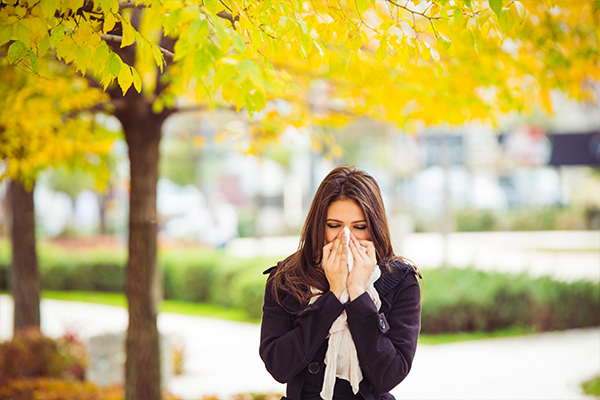
Do you get a ‘cold’ at the same time every year? Does it come on suddenly, especially when seasons change and last for weeks? It may be difficult to know if the symptoms you're experiencing are due to a cold or allergies. While the two share similar symptoms, their causes and treatments are different.
The Common Cold
A cold s caused by a virus and can last anywhere from 3 to 14 days. Colds occur more commonly in the winter but can happen at any time of the year. It may take a few days after a viral infection for symptoms to develop. Symptoms are broad and may include cough, body aches, fatigue, runny nose and a sore throat. Treatment of the common cold may include decongestants, cough suppressants, throat lozenges and pain relievers. The best way to protect yourself from getting a cold is to wash your hands, and avoid close contact with people who are ill with cold symptoms.
Seasonal Allergies
Allergies are the result of your immune system’s response to an exposure in your environment, such as pollen, which triggers your body to release chemicals including histamine. Seasonal allergies can develop very quickly after exposure to an allergen and may last for several weeks or months. They can occur anytime during the year, but often coincide with seasonal change. Symptoms that cause itching of the eyes, nose, or roof of the mouth are commonly associated with allergies. Other symptoms may include cough, runny nose and sore throat (which is usually the result of postnasal drip). Treatment for allergies may include over-the-counter anti-histamines, decongestants, nasal sprays, and if severe, can require prescription medication. Avoidance of environmental triggers may help prevent you from developing allergy symptoms.
Based on your symptoms, you may be able to determine if you have a true cold or if it’s seasonal allergies:
| Symptom | Common Cold | Allergies |
| Cough | Usually | Sometimes |
| Fever | Rare | Never |
| Fatigue, weakness | Sometimes | Sometimes |
| General aches & pains | Sometimes | Never |
| Itchy eyes | Rare to Never | Common |
| Runny nose | Common | Common |
| Sneezing | Usually | Usually |
| Sore throat | Common | Sometimes |
| Stuffy nose | Common | Common |
From the National Institute of Allergy and Infectious Diseases, June 2014
Both the common cold and allergies can cause similar complications, such as a sinus infection, ear infection or asthma exacerbation. While the two share many similarities, colds and allergies are not the same. By recognizing the difference between them, you can better navigate the aisle at the nearest drug store and target your therapy to get yourself feeling better faster. In either case, if your cold or allergy symptoms do not improve despite treatment, please discuss it with your doctor.
Dr. Carrie Holland